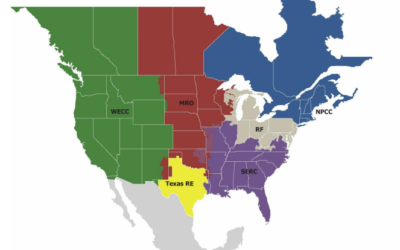The installation, in the Faroe Islands, is aimed to assist the islands' renewable energy ambitions while operating on a commercial basis. Image: wikimedia user: Erik Christensen.
The remote Faroe Islands in northern Europe are to benefit from a major energy storage system, which as well as helping integrate renewable energy sources, will also operate on a commercial basis providing grid balancing and other ancillary services.
The power generator and distributor for the Faroes, SEV, commissioned the project, which will see 2.3MW of lithium-ion batteries by French manufacturer Saft used to maximise the potential of a new 12MW wind farm installation.
Enjoy 12 months of exclusive analysis
- Regular insight and analysis of the industry’s biggest developments
- In-depth interviews with the industry’s leading figures
- Annual digital subscription to the PV Tech Power journal
- Discounts on Solar Media’s portfolio of events, in-person and virtual
According to Saft, which is working on the project in partnership with wind turbine and power conversion specialist ENERCON, this will be the first such project to operate on a commercial basis. It will aid grid stability by smoothing ramp rates of output from the wind farm, while also providing ancillary services that include frequency control, a crucial element in keeping the grid stable. The project is expected to go online in December this year.
The Faroe Islands, autonomous, with a population of just over 50,000 and located in the sea between Norway and Iceland, wants to get up to 75% renewable energy generation by 2020.
“The environmental and economic futures of the Faroe Islands demand that we maximize the usage of all our available renewable energy resources. But it is equally vital that we maintain grid stability and reliability as the penetration of intermittent generation increases,” Terji Nielsen, project manager for SEV, said. Nielsen also praised Saft and ENERCON’s “fully commercialised technology” and their support of the project through its various stages of development and execution.
Saft will deliver two of its Intensium Max containerised storage batteries, with a nominal rating of 700kWh and 2.3MW, which will be paired with ENERCON’s own power conversion and control systems.
The benefits of energy storage systems in remote locations for integrating renewables have long been discussed, but as Saft claims, this could be the first to do it on a market-driven basis. Other commercial installations of large-scale storage have been implemented in grid-connected locations already, although only a handful so far. Two notable examples are in Germany, where Younicos recently inaugurated a wind-integrating battery park and Belectric has co-located a solar farm with a large-scale battery system. Both of those projects play into Germany’s frequency control market, which awards the provision of frequency regulation services through a weekly tender process.






